Chemotherapy Waste Disposal
Sustainable Chemotherapy Waste Solutions
Every year, over a million Americans undergo chemotherapy treatment. Thanks to advances in cancer treatments, many of these patients will go into remission and can lead healthy and happy lives. However, chemotherapy treatment produces waste, and that waste requires specialized disposal.
Due to the radioactive nature of chemotherapy treatment, waste can’t simply be tossed in the trash. It requires special care in its disposal and handling, but what that entails depends on the type of waste, and whether it’s bulk or trace chemotherapy waste. At Medical Waste Pros, we understand the unique challenges posed by chemotherapy medical waste and offer comprehensive solutions tailored to the needs of healthcare facilities, oncology centers, and research institutions.
Our commitment to safety, compliance, and environmental responsibility sets us apart as a trusted provider, ensuring the meticulous handling and disposal of chemotherapy waste. With a focus on protecting both healthcare professionals and the environment, Medical Waste Pros stands as the premier choice for those seeking a reliable and compliant solution for chemotherapy medical waste disposal.
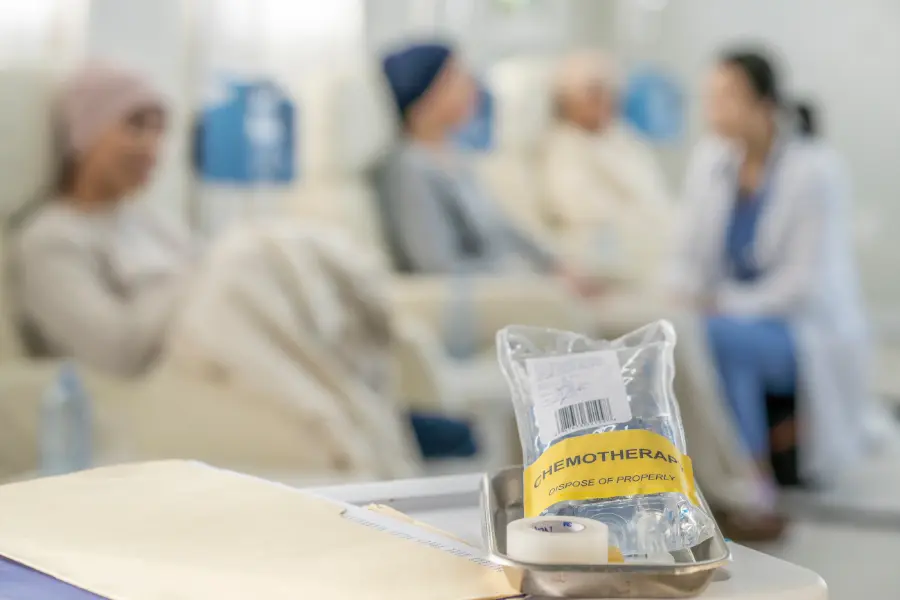
Our Chemotherapy Waste Disposal Options
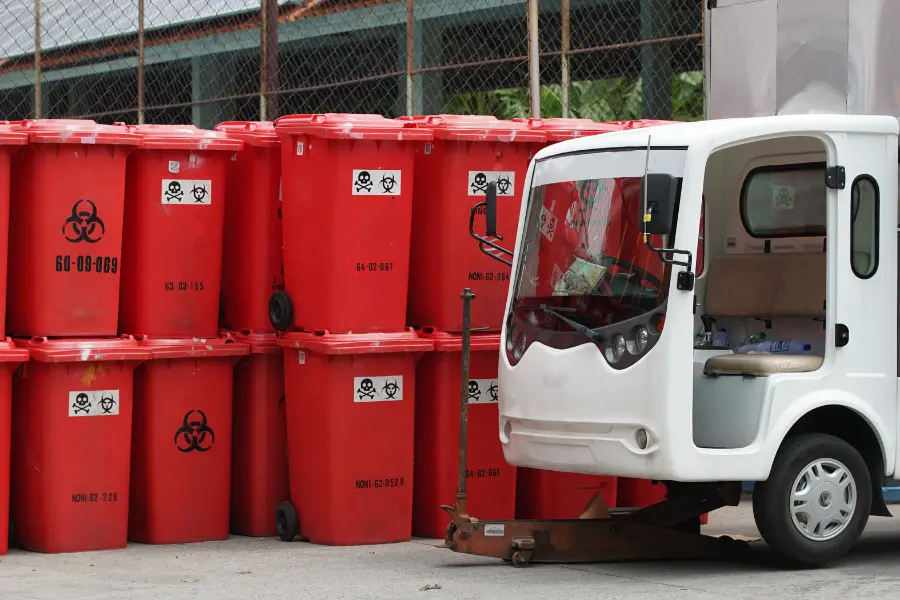
One-Time Pickups
For a one-time pickup, all you need to do is contact a medical waste disposal company and set up a time and place for the pick-up. The disposal provider comes to you and then takes the bulk and/or trace waste to an approved disposal site.
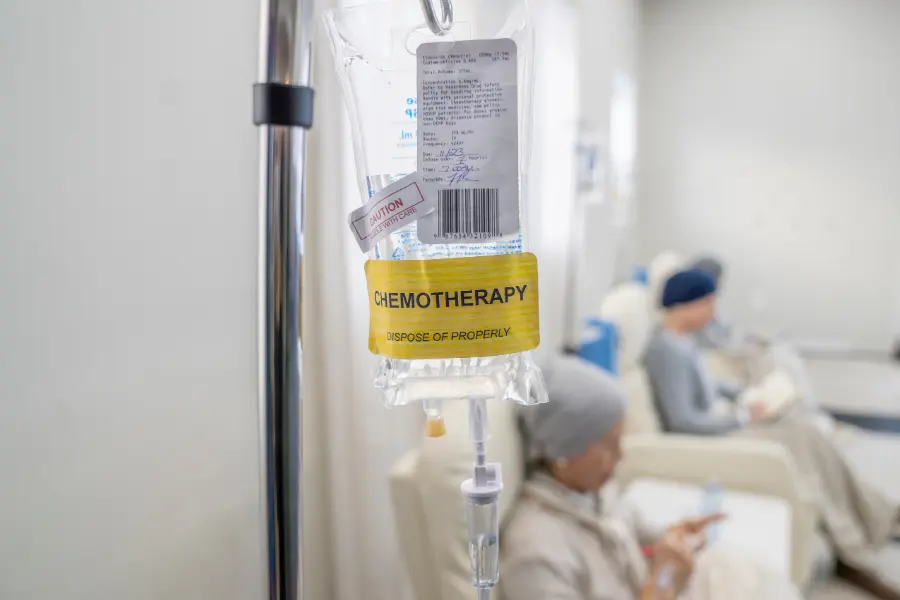
Regularly Scheduled Pickups
For a recurring pick-up, a medical waste disposal provider will arrive at a set date and time at whatever interval works best for your clinic or practice. This typically falls into weekly, bi-weekly, or monthly pickups, but a higher or lower volume can be arranged depending on your practice’s needs.
Why Choose Medical Waste Pros
Fast Turnaround
Get matched to a partner in 3-5 minutes. They will work with you to get a quote based on your specifications.
Nationwide Coverage
We have partners all over the United States.
Partnered with the Best
We have partners nationwide providing you with the best, secure options in your area.
Types of Chemotherapy Waste and Disposal Methods
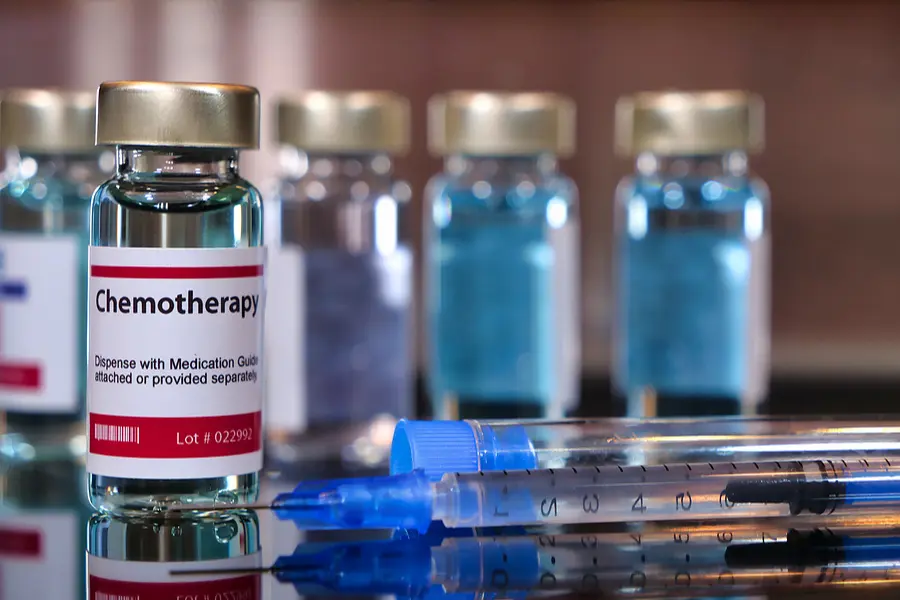
The main distinction you need to make when it comes to chemotherapy waste disposal comes down to whether it qualifies as bulk or trace chemotherapy waste. In most cases, the majority of your chemotherapy waste will fall under the trace category.
Trace chemotherapy waste includes everything used in chemotherapy treatment that could contain residue. This includes PPE used in the process, IV bags and syringes, empty drug bottles, or empty containers. Under RCRA guidelines, these items must have a chemotherapy waste component volume or weight of under 3%. On the other hand, bulk chemotherapy waste encompasses items used in treatment that are above the 3% weight or volume threshold. Containers that still contain drugs, soaked PPE, partially filled IV bags, or anything used to clean chemotherapy-related spills likely fall into this category.
Trace Chemotherapy Waste
Disposal for trace waste follows a simple process. All trace chemotherapy waste, excluding sharps, should be placed in a specifically labeled, yellow container. Sharps with trace chemotherapy waste should be placed in a separate chemotherapy sharps container for their disposal.
Once those containers fill up, you can either contact a medical waste disposal company to pick them up or send them to an approved incinerator in your area.
Bulk Chemotherapy Waste
Bulk chemotherapy waste requires more specialized disposal, as due to the nature of most of the drugs used in treatment it needs to follow hazardous waste disposal protocols. Any waste under this designation should be handled with care and placed in a specific container, typically a black one, but that’s not a requirement.
Unlike trace waste, the medical waste disposal company must be certified in hazardous waste disposal. This involves certification through the EPA, along with state and local regulatory bodies.
How Our Chemotherapy Waste Disposal Services Work
- Contact Medical Waste Pros at (888) 755-6370, fill out the form, or use the live chat to connect to one of our medical waste disposal experts.
- Tell us about your medical waste disposal project with details like the type of medical waste you have and how much.
- We will connect you to safe and reliable medical waste disposal companies in your area equipped to handle your specific needs. They will send you free quotes on your project.
- Choose the provider that best meets your needs and budget. You will then connect with the provider you choose and set up your disposal services, whether it’s one-time or recurring.
- Your service provider will come to pick up your chemotherapy waste and properly dispose of it at their secure facility.
Why You Should Properly Dispose of Your Chemotherapy Medical Waste
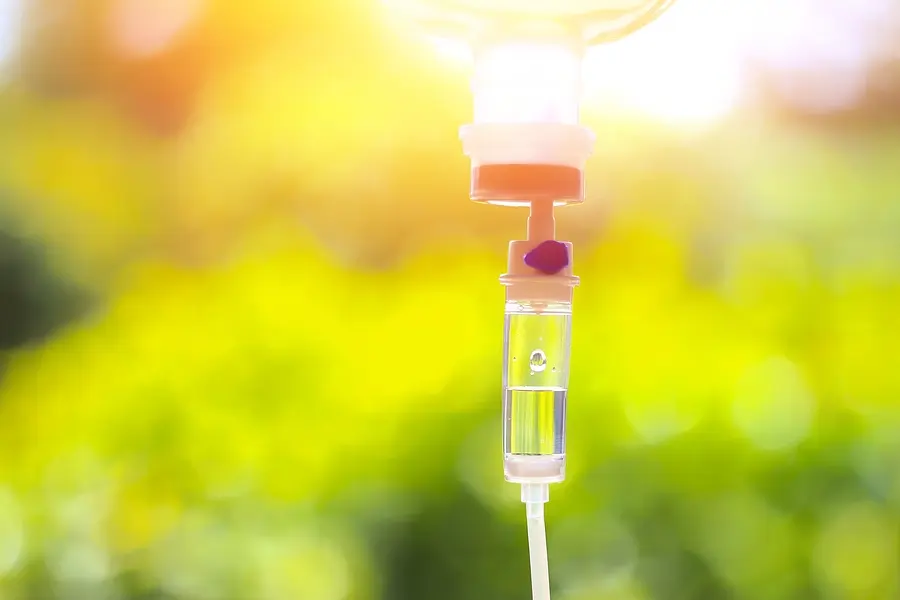
Environmental Protection
Chemotherapy drugs are potent medications designed to kill cancer cells, and they can be harmful to the environment if not disposed of properly. Safe disposal through incineration or high-temperature treatment helps prevent contamination of soil, water, and air.

Regulatory Compliance
There are strict regulations and guidelines governing the disposal of hazardous waste, including chemotherapy waste. Proper disposal ensures compliance with local, state, and federal regulations, preventing legal issues and penalties.
See What Our Customers Are Saying
Chemotherapy Waste FAQs
What qualifies as chemotherapy waste?

While new drugs are being researched and coming to market every year, the 9 most common in current cancer treatment are:
-
Arsenic Trioxide
-
Chlorambucil
-
Cyclophosphamide
-
Daunomycin
-
Diethylstilbestrol
-
Melphalan
-
Mitomycin C
-
Streptozotocin
-
Uracil Mustard
Anything that comes into contact with these drugs, or drugs of similar classification, will need to be treated as either trace or bulk chemotherapy waste and you will need to follow proper disposal protocols.
What is trace chemotherapy waste?

“Trace chemotherapy waste” refers to residual or trace amounts of chemotherapy drugs that remain in materials or items after the completion of medical procedures involving these drugs. Chemotherapy agents are potent medications used in cancer treatment, and their residues may be present in various forms, such as in vials, syringes, tubing, gloves, or other medical equipment.
What is bulk chemotherapy waste?

Bulk chemotherapy waste refers to larger quantities of unused or partially used chemotherapy drugs and related materials that are generated during healthcare procedures, such as cancer treatment or chemotherapy administration. This type of waste includes items like vials, syringes, IV tubing, gloves, gowns, and other materials that come into contact with chemotherapy drugs.
How can I dispose of chemotherapy waste at home?

If you have chemotherapy waste at home, it is essential to contact your healthcare provider, pharmacy, or local waste management authorities for guidance on proper disposal. Healthcare facilities and pharmacies have established protocols for handling and disposing of medical waste, including chemotherapy waste, in a safe and regulated manner. You can also check the American Cancer Society guidelines here.
What types of waste do you handle?

Medical Waste Pros can handle a variety of medical waste across different industries, including:
How much does a service cost?

The price of your medical waste disposal service will depend on the method you choose, the type of waste you have, the amount of waste you have, and other factors. When you contact us with the details of your project, our service providers will send you accurate price quotes for your specific needs.
Do you use safe medical waste disposal methods?

Yes, all of our service providers follow all state and federal regulations when it comes to disposing of medical waste. They use methods such as autoclaving, chemical treatments, and EPA-approved incineration.
Can I just throw my medical waste away?

No, you can’t throw away medical waste. There are state and federal laws, including OSHA, FDA, DOT, and the EPA, that regulate how to dispose of medical waste. These regulations were put in place for your safety, in terms of the environment and health effects of improper disposal.
What goes in a sharps container?

Using an FDA-approved container, you can put these items in it:
- Needles and syringes
- Lancets and blood testing supplies
- Infusion sets and auto-injectors
- Scalpels and razor blades
- Broken glass and other sharp objects











